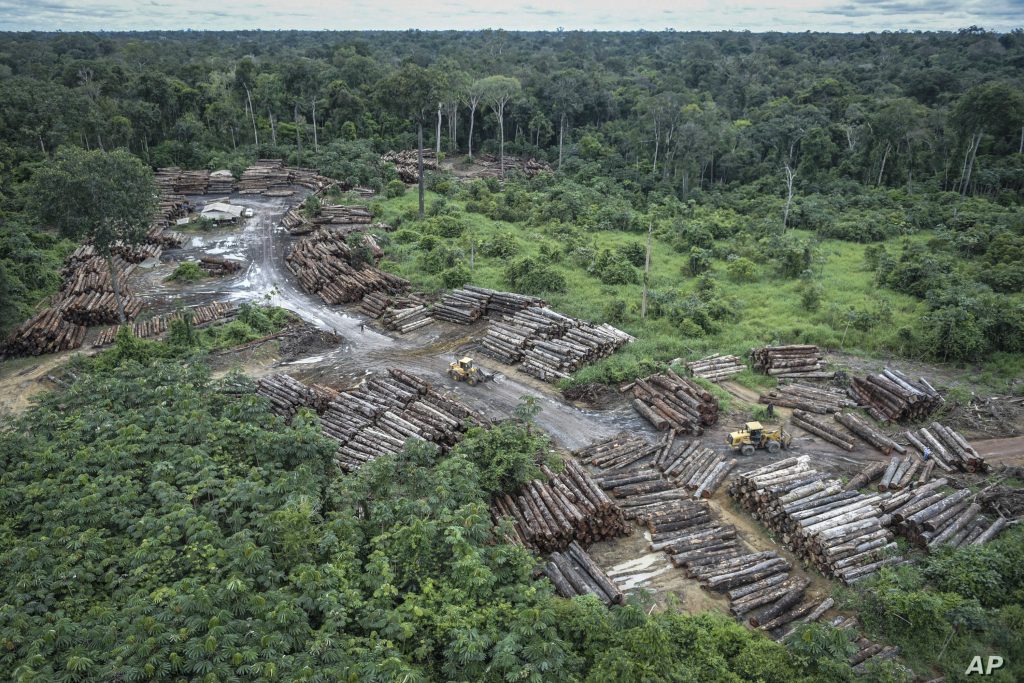
On the return of the United States to the international climate agenda, Biden has invited 40 world leaders, including the Brazilian president, for a virtual meeting during Earth Day celebrations on the days 22 e 23 of April, a milestone for COP26 to be held in Glasgow in November. One of its goals is to ensure the commitment of the main economies of the world to reduce the emissions of this decade and to maintain the limit of heating of 1,5 degrees Celsius. There is still no confirmation about the presence of President Bolsonaro at this event.
The importance of the international environmental agenda for the Biden administration is evident, Among other things, by the political weight of his special envoy to the climate, former Secretary of State John Kerry, one of the architects of the Paris Agreement. Like this, considering the high interdependence of international agendas, climate is consolidating itself as a geopolitical weapon at the disposal of American foreign policy in order to advance and promote American interests in the world. In this way, with regard to Brazilian foreign policy, the environmental agenda may overlap with the other guidelines within the scope of Brazil-USA relations.
In September 2019, Democratic senators had already filed a resolution expressing concerns about the Bolsonaro government's environmental policy, more precisely in relation to burning in the Amazon. Among its various considerations, the document highlights the fact that “70% of South America's GDP comes from regions that receive rain or water from the Amazon rainforest and that the forest influences rain patterns in regions as far away as the United States” additionally, its importance is vital for regional and global climate stability. In this sense, the resolution, which has the bipartisan support of American senators, “Recognize that fires and deforestation affect the whole world”.
Similarly, also in 2019, a bill was presented to the Foreign Affairs Committee of the Chamber of Deputies with the aim of banning the import of certain products from Brazil, as well as assistance and free trade agreements with Brazil. This is the Amazon Act (Amazon Law). In addition to highlighting the importance of the Amazon rainforest for the planet's climate, the document lists the actions of the federal government that show its negligence in relation to the environmental agenda in Brazil. Among the concerns listed there, draws attention to the understanding of US lawmakers that “the continued lack of enforcement actions against deforestation tactics and the unwillingness to aggressively fight fires in the Amazon forest by the Government of Brazil represent a direct threat to interests of the United States and national security ”. It is worth mentioning that the conditions of democracy and the rule of law in Brazil have also been observed. Try, in this case, gives resolution 594, also from the Chamber of Deputies, which expresses “deep concern about threats to human rights, the rule of law, to democracy and the environment in Brazil ”under the Bolsonaro government.
The content of the bill and the resolution of the Chamber of Deputies, as well as the senate resolution that were presented during the Trump administration wins, today, relevance in the current Biden-Harris administration that sees the environmental agenda as an important platform for advancing US interests in the scope of its international relations. Like this, the neglect of the Bolsonaro government's environmental management may jeopardize Brazilian exports of the following products to the North American market: beef, Soy, leather, madeira, sugar, Paper And Cellulose, tobacco, corn products, crude oil, natural gas and refinery products. In addition to compromising any negotiation to establish a free trade agreement like the United States, poor environmental management by the federal government affects military cooperation and assistance agreements, as well as the military exercises between the two countries.
Lastly, more recently, the State Department spokesman, Ned Price, external, in collective in day 4 March, that both Biden and Secretary Special Envoy for Climate John Kerry, hope to “see Brazil take additional concrete steps to combat climate change and achieve zero net emissions by 2050”.
Like this, considering the centrality of Biden’s environmental agenda for the United States, the question it imposes is: the federal government is aware of the impacts of the country's lack of commitment to the international climate agenda on the Brazilian economy? The recent change in Itamaraty disconnected from changes in the Ministry of the Environment's portfolio seems to be insufficient to signal to the world any prospect of reorientation in the direction of the Brazilian environmental agenda.
